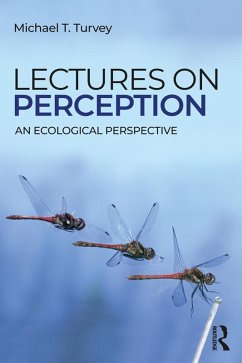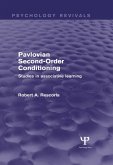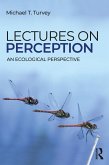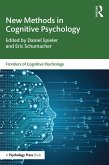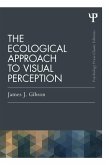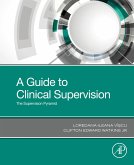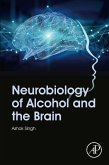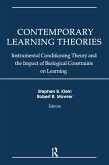63,95 €
63,95 €
inkl. MwSt.
Sofort per Download lieferbar

32 °P sammeln
63,95 €
Als Download kaufen

63,95 €
inkl. MwSt.
Sofort per Download lieferbar

32 °P sammeln
Jetzt verschenken
Alle Infos zum eBook verschenken
63,95 €
inkl. MwSt.
Sofort per Download lieferbar
Alle Infos zum eBook verschenken

32 °P sammeln
- Format: ePub
- Merkliste
- Auf die Merkliste
- Bewerten Bewerten
- Teilen
- Produkt teilen
- Produkterinnerung
- Produkterinnerung

Bitte loggen Sie sich zunächst in Ihr Kundenkonto ein oder registrieren Sie sich bei
bücher.de, um das eBook-Abo tolino select nutzen zu können.
Hier können Sie sich einloggen
Hier können Sie sich einloggen
Sie sind bereits eingeloggt. Klicken Sie auf 2. tolino select Abo, um fortzufahren.

Bitte loggen Sie sich zunächst in Ihr Kundenkonto ein oder registrieren Sie sich bei bücher.de, um das eBook-Abo tolino select nutzen zu können.
This book addresses the generic principles by which each and every kind of life form-from single celled organisms to multi-celled organisms-perceives the circumstances of their living so that they can behave adaptively.
- Geräte: eReader
- mit Kopierschutz
- eBook Hilfe
- Größe: 6.46MB
Andere Kunden interessierten sich auch für
![Pavlovian Second-Order Conditioning (Psychology Revivals) (eBook, ePUB) Pavlovian Second-Order Conditioning (Psychology Revivals) (eBook, ePUB)]() Robert RescorlaPavlovian Second-Order Conditioning (Psychology Revivals) (eBook, ePUB)58,95 €
Robert RescorlaPavlovian Second-Order Conditioning (Psychology Revivals) (eBook, ePUB)58,95 €![Lectures on Perception (eBook, PDF) Lectures on Perception (eBook, PDF)]() Michael T. TurveyLectures on Perception (eBook, PDF)63,95 €
Michael T. TurveyLectures on Perception (eBook, PDF)63,95 €![New Methods in Cognitive Psychology (eBook, ePUB) New Methods in Cognitive Psychology (eBook, ePUB)]() New Methods in Cognitive Psychology (eBook, ePUB)52,95 €
New Methods in Cognitive Psychology (eBook, ePUB)52,95 €![The Ecological Approach to Visual Perception (eBook, ePUB) The Ecological Approach to Visual Perception (eBook, ePUB)]() James J. GibsonThe Ecological Approach to Visual Perception (eBook, ePUB)69,95 €
James J. GibsonThe Ecological Approach to Visual Perception (eBook, ePUB)69,95 €![A Guide to Clinical Supervision (eBook, ePUB) A Guide to Clinical Supervision (eBook, ePUB)]() Loredana-Ileana ViscuA Guide to Clinical Supervision (eBook, ePUB)64,95 €
Loredana-Ileana ViscuA Guide to Clinical Supervision (eBook, ePUB)64,95 €![Neurobiology of Alcohol and the Brain (eBook, ePUB) Neurobiology of Alcohol and the Brain (eBook, ePUB)]() Ashok K. SinghNeurobiology of Alcohol and the Brain (eBook, ePUB)96,95 €
Ashok K. SinghNeurobiology of Alcohol and the Brain (eBook, ePUB)96,95 €![Contemporary Learning Theories (eBook, ePUB) Contemporary Learning Theories (eBook, ePUB)]() Contemporary Learning Theories (eBook, ePUB)53,95 €
Contemporary Learning Theories (eBook, ePUB)53,95 €-
-
-
This book addresses the generic principles by which each and every kind of life form-from single celled organisms to multi-celled organisms-perceives the circumstances of their living so that they can behave adaptively.
Dieser Download kann aus rechtlichen Gründen nur mit Rechnungsadresse in A, B, BG, CY, CZ, D, DK, EW, E, FIN, F, GR, HR, H, IRL, I, LT, L, LR, M, NL, PL, P, R, S, SLO, SK ausgeliefert werden.
Produktdetails
- Produktdetails
- Verlag: Taylor & Francis eBooks
- Seitenzahl: 446
- Erscheinungstermin: 31. Oktober 2018
- Englisch
- ISBN-13: 9780429813382
- Artikelnr.: 54671681
- Verlag: Taylor & Francis eBooks
- Seitenzahl: 446
- Erscheinungstermin: 31. Oktober 2018
- Englisch
- ISBN-13: 9780429813382
- Artikelnr.: 54671681
- Herstellerkennzeichnung Die Herstellerinformationen sind derzeit nicht verfügbar.
Michael T. Turvey is Board of Trustees' Distinguished Professor of Experimental Psychology at the University of Connecticut and a Senior Scientist at Haskins Laboratories in Connecticut. He is the recipient of Guggenheim and Catell Fellowships, the American Psychological Association Early Career Award, Fellow of Society of Experimental Psychologists (SEP), Bernstein 2009 Prize in Motor Control, SEP Lifetime Achievement Award, Association for Psychological Science Lifetime Mentor Award, and two honorary doctorates.
Table of Contents
Part 1: Foundational Concepts
1. What Kinds of Systems Do We Study?
2. Organism-Environment Dualism
3. Direct Perceiving, Indirect Perceiving
4. Simulative, Projective and Locality Assumptions
5. The Mechanistic Hypothesis
6. The Cartesian Program
7. Empiricism and the Man in the Inner Room
8. The Space Enigmas I: Berkeley
9. The Space Enigmas II: Kant, the Nature of Geometry, and the Geometry
of Nature
10. The Space Enigmas III: Local Signs and Geometrical Empiricism
11. Doctrines of Sensations and Unconscious Inferences
12. The Space Enigmas. IV: On Learning Space Perception
13. Gestaltism I: Atomism, Anatomism and Mechanistic Order
14. Gestalt Theory II: Fields, Self-organization, and the Invariance
Postulate of Evolution
15. Gestalt Theory III: Experience Error, CNS Error, Psycho-neural
Isomorphism, Behavioral Environment
Part 2: Computational-Representational Perspective
16. The Computational-Representational Perspective: Preliminaries
17. Pattern Recognition and Representation Bearers
18. Turing Reductionism, Token Physicalism: The Computational System
Assumption
19. Reflections on the Physical Symbol System Hypothesis
Part 3: Ecological Perspective
20. Ecology: The Science that Reasons Why
21. Barriers to Ecological Realism
22. Ontology at the Ecological Scale
23. Ecological Optics Primer
24. Perceiving "How to Get About Among Things"
25. The Mechanical Basis for "Getting About Among Things"
26. Strong Anticipation and Direct Perception
Part 1: Foundational Concepts
1. What Kinds of Systems Do We Study?
2. Organism-Environment Dualism
3. Direct Perceiving, Indirect Perceiving
4. Simulative, Projective and Locality Assumptions
5. The Mechanistic Hypothesis
6. The Cartesian Program
7. Empiricism and the Man in the Inner Room
8. The Space Enigmas I: Berkeley
9. The Space Enigmas II: Kant, the Nature of Geometry, and the Geometry
of Nature
10. The Space Enigmas III: Local Signs and Geometrical Empiricism
11. Doctrines of Sensations and Unconscious Inferences
12. The Space Enigmas. IV: On Learning Space Perception
13. Gestaltism I: Atomism, Anatomism and Mechanistic Order
14. Gestalt Theory II: Fields, Self-organization, and the Invariance
Postulate of Evolution
15. Gestalt Theory III: Experience Error, CNS Error, Psycho-neural
Isomorphism, Behavioral Environment
Part 2: Computational-Representational Perspective
16. The Computational-Representational Perspective: Preliminaries
17. Pattern Recognition and Representation Bearers
18. Turing Reductionism, Token Physicalism: The Computational System
Assumption
19. Reflections on the Physical Symbol System Hypothesis
Part 3: Ecological Perspective
20. Ecology: The Science that Reasons Why
21. Barriers to Ecological Realism
22. Ontology at the Ecological Scale
23. Ecological Optics Primer
24. Perceiving "How to Get About Among Things"
25. The Mechanical Basis for "Getting About Among Things"
26. Strong Anticipation and Direct Perception
Table of Contents
Part 1: Foundational Concepts
1. What Kinds of Systems Do We Study?
2. Organism-Environment Dualism
3. Direct Perceiving, Indirect Perceiving
4. Simulative, Projective and Locality Assumptions
5. The Mechanistic Hypothesis
6. The Cartesian Program
7. Empiricism and the Man in the Inner Room
8. The Space Enigmas I: Berkeley
9. The Space Enigmas II: Kant, the Nature of Geometry, and the Geometry
of Nature
10. The Space Enigmas III: Local Signs and Geometrical Empiricism
11. Doctrines of Sensations and Unconscious Inferences
12. The Space Enigmas. IV: On Learning Space Perception
13. Gestaltism I: Atomism, Anatomism and Mechanistic Order
14. Gestalt Theory II: Fields, Self-organization, and the Invariance
Postulate of Evolution
15. Gestalt Theory III: Experience Error, CNS Error, Psycho-neural
Isomorphism, Behavioral Environment
Part 2: Computational-Representational Perspective
16. The Computational-Representational Perspective: Preliminaries
17. Pattern Recognition and Representation Bearers
18. Turing Reductionism, Token Physicalism: The Computational System
Assumption
19. Reflections on the Physical Symbol System Hypothesis
Part 3: Ecological Perspective
20. Ecology: The Science that Reasons Why
21. Barriers to Ecological Realism
22. Ontology at the Ecological Scale
23. Ecological Optics Primer
24. Perceiving "How to Get About Among Things"
25. The Mechanical Basis for "Getting About Among Things"
26. Strong Anticipation and Direct Perception
Part 1: Foundational Concepts
1. What Kinds of Systems Do We Study?
2. Organism-Environment Dualism
3. Direct Perceiving, Indirect Perceiving
4. Simulative, Projective and Locality Assumptions
5. The Mechanistic Hypothesis
6. The Cartesian Program
7. Empiricism and the Man in the Inner Room
8. The Space Enigmas I: Berkeley
9. The Space Enigmas II: Kant, the Nature of Geometry, and the Geometry
of Nature
10. The Space Enigmas III: Local Signs and Geometrical Empiricism
11. Doctrines of Sensations and Unconscious Inferences
12. The Space Enigmas. IV: On Learning Space Perception
13. Gestaltism I: Atomism, Anatomism and Mechanistic Order
14. Gestalt Theory II: Fields, Self-organization, and the Invariance
Postulate of Evolution
15. Gestalt Theory III: Experience Error, CNS Error, Psycho-neural
Isomorphism, Behavioral Environment
Part 2: Computational-Representational Perspective
16. The Computational-Representational Perspective: Preliminaries
17. Pattern Recognition and Representation Bearers
18. Turing Reductionism, Token Physicalism: The Computational System
Assumption
19. Reflections on the Physical Symbol System Hypothesis
Part 3: Ecological Perspective
20. Ecology: The Science that Reasons Why
21. Barriers to Ecological Realism
22. Ontology at the Ecological Scale
23. Ecological Optics Primer
24. Perceiving "How to Get About Among Things"
25. The Mechanical Basis for "Getting About Among Things"
26. Strong Anticipation and Direct Perception
